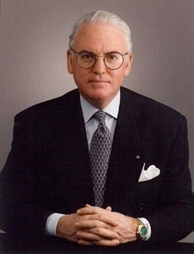For his conviction on 13 counts of corruption, former disgraced Alderman Ed Burke was sentenced on Monday, June 24, to just two years in jail. With a year of probation, he will spend just a year behind bars. He must pay $2 million in fines or $150,000 each for 12 counts and $200,000 for one count.
The hefty fine must be paid before Burke reports to authorities in September to begin his sentence.
For Blacks in Chicago, Burke’s punishment should have been tougher, even more than the maximum six to eight years federal Judge Virginia Kendall hinted at before she gave Chicago’s longest-serving alderman his two-year jail sentence.
When Burke was convicted of 13 counts of corruption for four schemes he orchestrated as alderman, many Black Chicagoans felt karma had finally caught up with a man who repeatedly offended them during his 54-year-long career on the City Council.
Many Blacks still remember Burke as a major force, who with Alderman Ed Vrdolyak and 27 other white aldermen, fueled the infamous “Council Wars” against Mayor Harold Washington during his term in office.
Decades earlier, Burke in his first term in office supported then Cook County State’s Attorney Ed Hanrahan who was behind the 1969 raid that killed Black Panther Fred Hampton on the West Side.
Those two events forever scarred Black Chicago, and Burke’s name was sullied, as he built a powerful political career that made him rich and untouchable for five decades.
When he became a convicted felon in December, many Black residents hoped Burke would finally get the payback he deserved for the pain and suffering he caused Black Chicago. As Burke prospered from his ill-gotten fiefdoms, Black Chicago never healed after losing two revered Black leaders who died fighting the white political machine at City Hall, of which Burke was proud to be a part.
Burke will always be viewed as an enemy of Harold Washington, Chicago’s first Black mayor, who angered the white political establishment after his historic election in 1983. As part of the infamous “Vrdolyak 29,” Burke served as an obstructionist who helped block Washington’s initiatives with the City Council’s 29 white aldermen.
Washington’s budgets were passed, but all of his proposals were often rejected, and his appointees were vetoed. At least 80 mayoral appointments were held up for years, and members whose terms had expired on committees were still serving in their roles. It was no secret that Burke and Vrdolyak conspired to “impugn Washington’s integrity.”
Burke repeatedly characterized the Washington administration as being “run by pimps and panderers.”
Washington called Burke “a racist,” according to the book Harold Washington: The Man, The Mayor.
Blacks hated Burke so much that his chances of becoming mayor were slim without the city’s powerful Black electorate.
Washington in the end prevailed with a majority on the City Council, after a federal court ordered Chicago’s ward map redrawn, saying the existing map discriminated against Blacks and minorities. Washington had 25 aldermen on his side and he held the tie-breaking 26th vote.
Blacks believe the stress of Burke and Vrdolyak’s “Council Wars” caused Washington to have a fatal heart attack a few months after he was re-elected in 1987.
One could argue that the racial rift between Burke and Black Chicago began in Burke’s first year in office. That year, Burke supported Cook County State’s Attorney Ed Hanrahan, who ordered the pre-dawn raid on December 4, 1969 that killed Fred Hampton, leader of the lllinois Chapter of the Black Panther Party.
The raid made global headlines and elicited heavy criticism of Hanrahan, who cemented a close friendship with Burke. As the men shared their Irish roots, whites in Chicago viewed Hanrahan as a hero, but in Black Chicago, Hanrahan was a villain.
Police shot Hampton several times, including twice in the head. Police claim bullet holes showed that Hampton fired first, but many of those holes turned out to be nail heads. Hanrahan and the officers involved in the raid were cleared of criminal misconduct by a grand jury.
As support for Hampton grew in Black Chicago, Burke was one of 16 aldermen who did not support a resolution honoring the Black Panther leader with a Fred Hampton Day.
When Hanrahan ran for re-election in 1972, Burke supported him. But most Black voters opted for his Republican opponent Bernard “Bernie” Carey, who won the Cook County State’s Attorney’s race.
When Hanrahan died in 2009, Burke said in one news report, “I think anyone who ever met Ed Hanrahan quickly came to realize he was a man of high principles and fiercely loyal to his values.”






